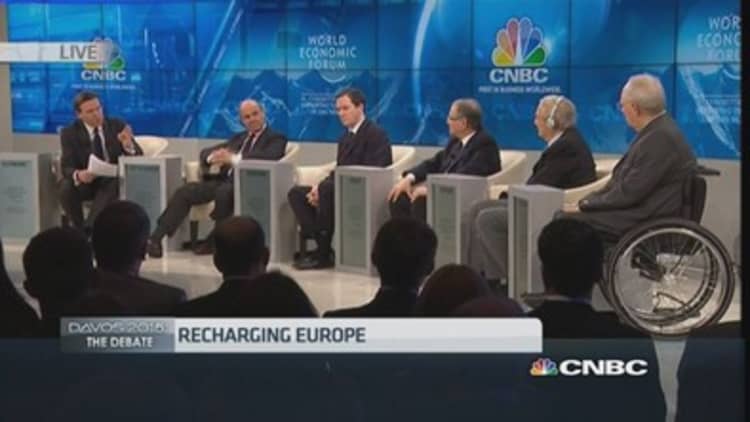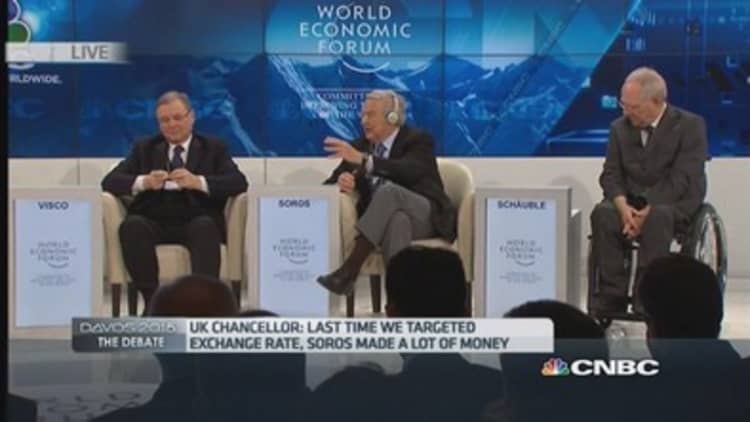
Billionaire investor George Soros has given a damning verdict on the launch of the European Central Bank's (ECB) trillion-euro quantitative easing program, warning that that it will create bubbles in the region's asset markets.
"My main concern that it will make divergence between rich and poor bigger than it already is," he said at a CNBC panel at the World Economic Forum in Davos Friday.
Read MoreFollow the CNBC Recharging Europe debate here
"It will benefit the owners of assets and actually wages will remain under pressure through competition and unemployment."
He warned that he would have "political consequences" and will also have an effect on international currency markets.
"The sheer size of the massive injection and the duration, and so on, will have undoubtedly an effect...If I were still active in the business I could see some fairly substantial moves coming and financial stability can create dislocations and turmoil from time to time."
Read MoreEuro hits 11-year low: Will it go below $1?
Mario Draghi, the present of the ECB, detailed Thursday that the central bank would buy corporate and government bonds to the tune of 60 billion euros ($69 billion) a month.
This is in response to stalling growth in the euro zone and an inflation rate that has just tipped into negate territory.
Read MoreOpen-ended European QE starts 'with a bang'
The ECB's program will be open-ended but will last until at least September 2016, Draghi said, adding that the purchases will be subject to risk-sharing arrangements to minimize risk on the ECB's balance sheet.
European markets pushed higher on the news after weeks of speculation and the euro has ticked lower with the expectation that the euro zone will now be flooded will the extra cash.
Soros has been a notable critic of Germany's policy for making struggling euro zone nations commit to austerity measures and for its resistance to the measures that Draghi announced on Thursday. Soros said that the bloc really needed to have the right balance of monetary and fiscal policy to return to growth.
Read MoreDraghi pushes Europe bond yields, euro to new lows
The German Finance Minister Wolfgang Schaeuble, speaking at the same seminar in Davos, wouldn't comment on the asset purchases but said he respected the independence of the central bank. He said that the ECB was doing its job "very well" and iterated his belief that fiscal policy in the region still needs to be improved.
"National politics can create growth," he said. He spoke of "moral hazard" and was concerned that some countries might "misunderstand" this major injection of liquidity but conceded that government reforms is "always a difficult task."

Spanish Finance Minister Luis de Guindos also responded to Soros, saying that he endorsed the decision by the central bank.
Speaking solely on the Spanish economy he explained that the country had implemented some bold reforms three years ago and agreed that monetary policy is not an "almighty instrument" that should be used in solitude.
"We have started to create growth with those policies...(they are a) good example of the kind of policies that we should implement," he said.
He also dismissed the current deflationary environment in Spain, blaming the negative price growth on the dramatic drop in oil prices. He claimed that deflation can be good or bad and that Spain was currently experiencing the former.







